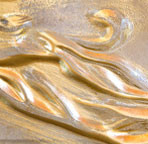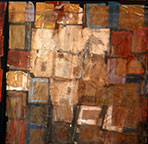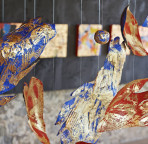In a recent panel discussion about the transformative power of Shakespeare, Louis Colaianni, author of How to Speak Shakespeare addressed the difficulty of accessing Shakespeare’s language in contemporary settings. Colaianni said,
“When someone is really speaking from the heart, and is really speaking to who is in front of them, then the language doesn’t sound archaic. Shakespeare’s language is written not just in a certain syntax, but the sounds of the words contribute to the expression and meaning and the atmosphere of what’s happening; so its an event. If someone can really hook in on a deep level, and relate that event with all their senses, and really want you to receive it, often people say, ‘that was Shakespeare? I thought it couldn’t be; it sounded like our language.’ “
If I do not myself own the message which the Form contains how can I speak it, write it, paint it, sing it to another human heart? The doors to and from our hearts swing both ways; their locks and safeties often requiring the true believer’s secret password before admitting access.
Comments welcome.
(Sponsored by Elements Theatre Company, How Shakespeare Humanizes Our Culture: The Transforming Power of His Work took place February 7th at The Players, New York, NY. It can be viewed in its entirety at http://elementstheatre.org)






Once, I had a part in a play, and it was not coming across authentic, my mentor wrote me a letter and told me that I had to own my part, I had to go inside my character and own her. I did so, and it transformed me and people never stopped talking about it for years. I’ve always been afraid and want to hide from
reality of myself and reality in general, but when I burst on to the scene in boldness of truth I become transformed and hold within the form it’s light.
My very first job was to usher [in Shakespearean garb!] at the Stratford (CT) Shakespeare Festival Theater in the Summer of 1955. It was a wonderful experience that magically transported the theatergoer into another world. The actors, Katherine Hepburn, Roddy MacDowell, Christopher Plummer, Raymond Massey, and Jack Palance, were in all 3 plays, sometimes playing a lead role, sometimes a minor role. They were all so immersed into their role and emoted so beautifully that there was absolutely no difficulty understanding the language…in fact, one didn’t even notice that there was a difference. What a God-given gift each offered to their audience each night! Unfortunately, the theater has been closed for many years and is falling neglected into a sad state of disrepair.
Lynne Meyer
“… And when she sang, the sea,
Whatever self it had, became the self
That was her song, for she was the maker. Then we,
As we beheld her striding there alone,
Knew that there never was a world for her
Except the one she sang and, singing, made.”
Difficult things are often difficult to talk about. How is it that any of our makings are regarded with anything other than incomprehension? Are my failures of Form because I cannot believe my own message? Because I have forgotten my password? I take no solipsistic delight in decorating my reality with artifactive evidence of my singularity. Rather I seek to contact other worlds I believe exist: the made thing I have the skill of making a sort of probe toward these hearts.
Ah, what would Mr Stevens say?
(.. . . )
They said, “You have a blue guitar,
You do not play things as they are.”
The man replied, “Things as they are
Are changed upon the blue guitar.”
—Wallace Stevens, The Man with the Blue Guitar
It occurs to me, getting back to the original post, that maybe we can think of Shakespeare’s language as a blue guitar: a familiar instrument with an unfamiliar tuning where Shakespeare played things changed from what they are. To me the difficulty many people have with Shakespeare’s language is similar to the difficulty many people had (have?) with Abstract Expressionism. I remember something Clement Greenburg once said about Jackson Pollok, “He wasn’t this wild hedonistic genius… He looked. He looked hard.” Well, Shakespeare looked hard too. When I perceive that looking hard, the grammar ceases to be an impediment. At various points during my education, much was made of Shakespeare’s lack of religion and I thought of him as a kind of precursor to Nietzsche. These days, however, I fancy he was, privately, a profoundly religious man whose characters, in some aspects, play out the awful tension between the inner hope and the outward form.
Shakespeare’s work demands full ownership. In my experience, ownership is a full body sport. It seems to me especially true with Shakespeare but I believe it is true with everything. To own the message in the Form, we must be sold out to what it contains, says and reveals, even if we don’t know where it will lead. It requires faith in the work and process, and as was said in the panel this blog quotes from, “it is required, you do awake your faith’ faith in the Form to carry us does not take away the work of owning what we wish to say and wish to be heard. I believe Shakespeare was a deeply faith-full man, who lived in a dangerous time when religion was the sword that sliced both ways. It seems to me his hope was in the relationship between man and the divine. His world view, his sense of heaven and hell, gave him the form in which to express the depravity and beauty of man, with the hope of the divine for assistance always.